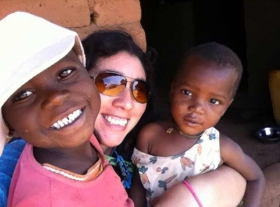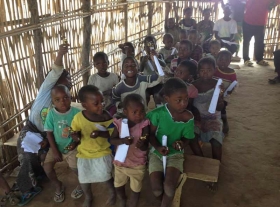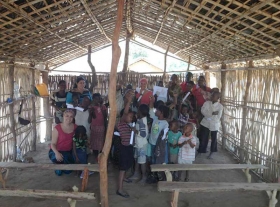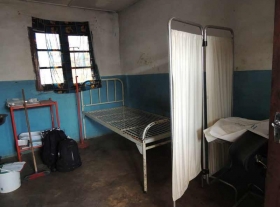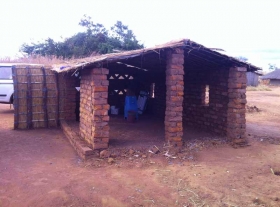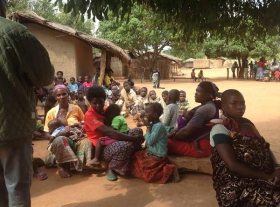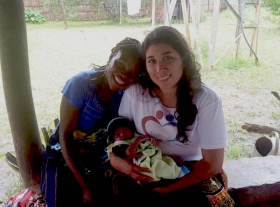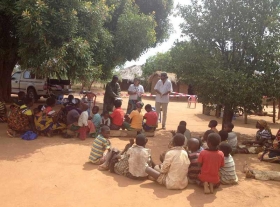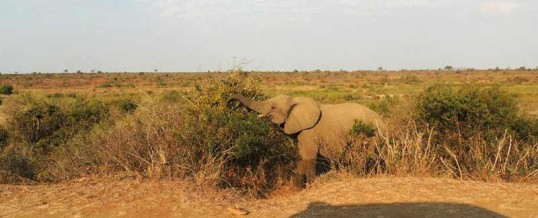
I am writing to you to express my personal appreciation for your collaboration with our mission to Mozambique. The active support of friends and church members such as yourself helps us to continue to spread the great commission. Matthew 28:16-20
The gift of Messiah Missions to the 2016 Mozambique Mission journey will help to work in Lichinga with the Yao People, 891 miles north of Maputo. The Yao are a predominantly Muslim people of about 2 million spread over three countries, Malawi, northern Mozambique, and in Ruvuma Region and Mtwara Region of Tanzania. Please pray that the Lord would remove the blindfolds which Satan has placed upon the hearts of the Yao people, and that laborers would be sent to plant seeds that would take root in fertile soil, and produce a great harvest of souls. Also for freedom from witchcraft, fear and envy.
Presentation
The majority of Yao are subsistence farmers. Because of the Yao people’s involvement in the trade of Ivory, grains, and slaves in exchange for clothes and guns with the Arabs, they became one of the richest and most influential tribes in Southern Africa. Large Yao kingdoms came into being as Yao chiefs took control of the Niassa province of Mozambique in the 19th century. The most important result of the chiefdoms was the turning of the whole nation to Islam around the turn of the 20th century and after World War I. Because of their trade with the Arabs and Swahili, the Yao chiefs (sultans) needed scribes who could read and write. The Islamic teachers who were employed and lived in the Yao villages, made a significant impact on the Yao people because they could offer them literacy, a holy book, religious clothes, and square, instead of round, houses. Furthermore, the Yao sultans strongly resisted the Portuguese, British, and German colonial rule, which was viewed as a major cultural and economic threat to them. The British tried to stop the ivory and slave trade by attacking some of the Yao trade caravans near the coast. The Yao chief Mataka rejected Christianity, as Islam offered them a social system, which would assimilate their traditional culture. Because of the political and ritual domination of the chiefs, their conversion to Islam caused their subjects to do likewise. The Folk Islam which the Yao people have embraced is syncretized with their traditional animistic belief system.
The expanding Portuguese Empire had established trading posts, forts and ports in East Africa since the 15th century, in direct competition with the diverse influential Muslim political forces. Later in the 19th century, the Portuguese were also involved in a large slave trade that transported African slaves from Mozambique to Brazil. Portuguese-run agricultural plantations started to expand offering paid labour to the tribal populations workforce. The Yao increasingly became poor plantation workers under Portuguese rule. However, the Yao preserved their traditional culture and subsistency agriculture by their own. As Muslims, the Yao could not stand then domination by the Portuguese, which however, offered Christian education and taught the Portuguese language to the Muslim ethnic group with little feedback. Currently, there are a minimum estimated 450,000 Yao people living in Mozambique. They largely occupy the eastern and northern part of the Niassa province and form about 40% of the population of Lichinga, the capital of this province. (Wikipedia)
Mozambique has suffered a lot, first as a colony and afterwards, as an independant country enduring a 16-year long civil war. The aftermath of these events are obvious as well as the consequences on the population. Poverty is so widespread that it reaches 70% of the population, and it has a high infant mortality of 100 per 1000 live births. Life expectancy is only 41 years old–one of the reasons being the fact that 12% of people between 15 and 49 years old suffer from AIDS, therefore they die very young, in addition to poverty-related diseases or conditions. But also Mozambique is highly vulnerable to natural disasters such as droughts, cyclones, floods. These intense weather conditions make matters worse for people since their precarious houses, crops, infrastructure of villages, etc. suffers greatly as a result.

There is already a missionary working in Lichinga. Catherine Valenzuela is a nurse from Chile who runs a medical clinic and serves the community in different capacities as well. More information in Spanish is available on her Facebook page here. She is also the last member of a group of missionaries that used to serve that area.
Participants
This project will be carried out by an inter-denominational group of five Chilean Christian brothers from different churches and countries, with the sole purpose of honoring the One who gave His life on the cross of Calvary for the sake of our souls, who gave us the Great Commission, Jesus Christ the son of God.
Proposed Activities
Heeding God’s call in Mark 16:15 we have decided to work first in Lichinga, approximately 1434 kilometers north of Maputo, near the border with Malawi, in the middle of the Yao people. There, we will have to learn to communicate in Yao (Ciyawo in English), which is an African bantu language. We will then work in Maputo, where the official, Portuguese language predominates. Our mission will be to help in the evangelization and education efforts already in place, as well as to help repairing some houses for missionaries and bridges for the village.
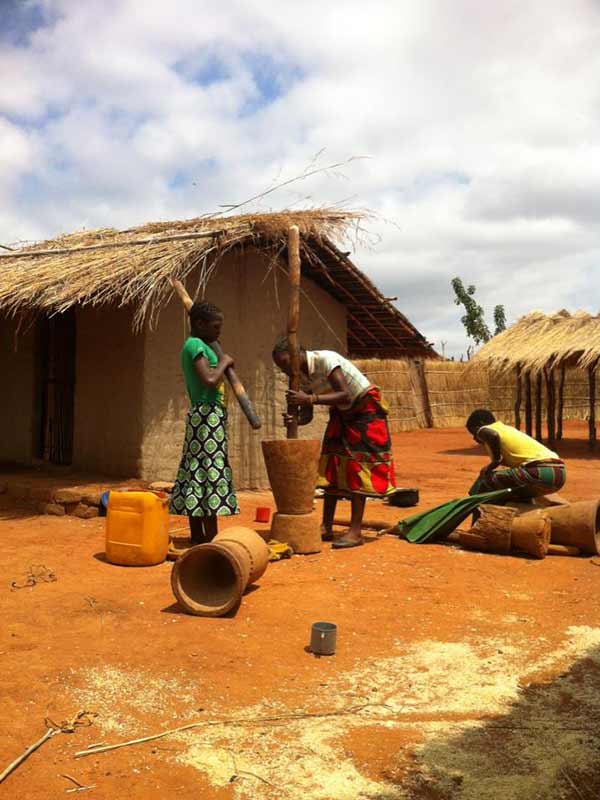 General objectives:
General objectives:
- Deliver social assistance together with the message of the Gospel of Jesus Christ with the aim of either reducing or providing for the physical and spiritual needs of the people in dire need in the country.
- Locate such groups and present them with the Gospel of our Lord Jesus Christ for the benefit of their spiritual health.
- Contribute in the education of these groups, including disease prevention, health care and the hope of blessing that the Gospel of Jesus Christ gives.
Specific objectives:
- Provide everything that we can–clothing, food, medicines and biblical material.
- Assess the needs and prioritize.
- Recognize the reality of the area in terms of Gospel need, unreached peoples, for future initiatives in Mozambique as well as in Malawi.
How to collaborate
Thank you in advance for your intention to suppport this ministry! Please go to our DONATE page to make a tax-exempt contribution. Thank You, and God bless you for your generosity!
In particular, donations of medications are highly needed, such as: painkillers, Chloromycetin, allergy relief medications, Anti-Inflammatory Drugs, Antibiotics, among others.
This missionaries participating in this project are supported by the fellowship of the following organizations:
- Mission and Passion for Christ
- Messiah Missions International
- Southside Baptist Church Winston Salem, NC
We are grateful for your generosity, your trust, and most importantly, your commitment to our mission. On behalf of my family and the independent missionaries who are going to participate with me in this beautiful project we thank you for your generous support and many blessing for Messiah Mission.
Pastor David Fuentes
DEC
2015

